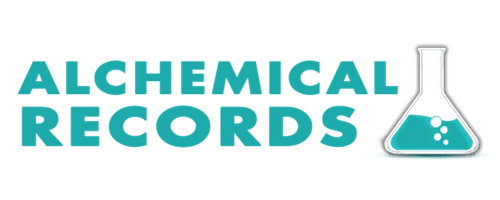
by Eric Althoff
Shelby Blondell of Baltimore has always had music in her life, but it was the well-being of others that inspired her to pursue it as a calling. While still in high school, Blondell—who later would tour with Howie Day, Pentatonix and Ryan Cabrera—went to St. Jude Children’s Research Hospital to support a classmate and decided to use her musical gifts for the betterment of others.
“It was at that moment that I first-hand got to see the impact of music on people’s lives,” Blondell said, adding that covers as well as her original compositions “helped people through their lives.”
A year ago, Blondell was herself admitted to the hospital for a chronic condition called craniosynostosis, or pressure inside the skull, that required several brain surgeries as well as a spinal tap (and not the fun English band kind).
“Ben Carson actually did my first surgery,” Blondell said with a laugh, recalling her run-in with the renowned surgeon and now-HUD secretary.
Blondell recalls being unable to walk last spring, which forced her to appreciate the beauty she still had in her life, as well as how she could continue to use her music to help others. Through it all, her faith has been her “backbone.”

“I remember God kind of coming and telling me it’ll be OK,” she said of her convalescence. “Those words have been something I’ve tried to carry through my life.”
Indeed, “It’ll Be OK” is the title of Blondell’s recent composition, which she wrote out of a sense of appreciation for the front-line workers who are continuing to deal with the coronavirus pandemic that has shut down not only the music world, but much of the global economy.
The video for “It’ll Be OK,” which Blondell also edited, shows healthcare workers and everyday people continuing on with their daily lives, even in the most unusual of circumstances.
“There were other concepts for a video, but with all that is happening, the only thing that felt right was to showcase what everyone is dealing with,” Blondell said. “Everyone from healthcare workers to grocery workers to stay-at-home parents. People who have lost their jobs (and) kids now being schooled from home.
“Everyone is showing superhuman characteristics and just proving that there’s happiness in all these little things,” she said. “And also lots of tears, but it will be OK. We can get through whatever it is that’s currently stopping us in some way.”
“It’ll Be OK” is poppy and upbeat, perhaps reminiscent of some of the work of Colbie Caillat. But when asked where she would “fit” in the music genre puzzle, Blondell claims that she is a combination perhaps of Lauren Daigle, Sara Bareilles and Jason Mraz.
If those three “had a tailgate,” Blondell said, “that would be me!”
However, rather than allowing herself to be shoehorned into any such taxonomy, Blondell considers herself an inheritor of the singer-songwriter ethos.
“I feel if there’s a song and a message that needs to get heard, it’s whatever that song needs,” she said, not necessarily trying to fit in with any genre sound. “It’s really about being able to help people along their journey, whatever that might look like.”
What that looks like right now, of course, is concert halls, coffeehouses and clubs shuttered around the DMV as the coronavirus continues to exact its toll on both public health and the arts. The news is especially bad news for musicians like Blondell, who rely on the revenues of live performance more than ever in a digital world.
However, she said the silver lining of the current lockdown is that people are hungry for new music, and technology allows her to still get it “in front” of them.
“It’s been fun to be able to interact and see comments come in, and (then) address people. You can’t necessarily do that live,” Blondell said of virtual music-making.
However, being with the people and sharing live music is still both the goal and the way, she said, especially when she is jiving with other musicians onstage.
“That’s the part I miss the most I think,” Blondell said, adding that all the musicians she knows are missing out right now on both opportunities and income. Ergo, sharing her music online during the shutdown is its own reward, but the bills still need to be paid.
“You realize how much has been lost. It’s your livelihood,” Blondell said. “But the community is very strong, and artists are supporting each other, especially in the DMV area. Everyone is tuning into each other’s livestreams.”
“People are helping each other find grant money and other means to get them by. And from (the) audience standpoint, when people are giving people the opportunity to support (musicians), they’re willing to do it. They want to do it.”
Blondell is working on new videos and music to share both online and, eventually, with live audiences. And though everyone is anxious to again pack the venues, she isn’t sure things will return “to normal” for performers for quite some time.
“I don’t want people who have been doing this as their livelihood to not be able to create music, (but) I think it’s going to be a complete shift in how we see music moving forward,” Blondell said. “I think what we’re going to see first is outdoor shows, and (wait to see) what that shift is going to look like.”
Those who might have the easiest time, she believes, are solo performers and singer-songwriters, such as herself, versus those who rely on larger stages and more raucous crowds ordering drinks.
“Original artists are getting time to get a lot of recording done and live-streaming to grow their fanbases.”
That extends to the response Blondell has seen to “It’ll Be OK,” with fan videos even putting their own spin on her composition.
“We can’t be together physically, but (we can) be together, even if it’s virtually,” she said.
A Maryland native, Blondell, who lives close to (a now rather quiet) Baltimore-Washington International Airport, takes crab dining rather seriously. Accordingly, she sells her own tool, called “The Sheller,” –a double meaning due to her given name– to those looking to crack open some crabs.
She even once handed one off to Maryland Gov. Larry Hogan.
“It was awesome to get a photo with him and pass “The Sheller” along,” she said. “He’s an incredible guy, showing such leadership, and I think that’s something we all need right now,” she added of Hogan. “We’re lucky to have him.”
For more information about Shelby Blondell, visit https://www.shelbyblondell.com/ or https://www.facebook.com/Shelbyblondell/.

A native of New Jersey, Eric Althoff has published articles in “The Washington Post,” “Los Angeles Times,” “Napa Valley Register,” “Black Belt,” DCist, ScreenComment.com and Luxe Getaways. He produced the Emmy-winning documentary, “The Town That Disappeared Overnight,” and has covered the Oscars live at the Dolby Theater. He lives in Fredericksburg, Virginia, with his wife, Victoria.

Recent Articles March 21st. A day that I will always think of amazing album releases. DC-based musician, producer, and singer-songwriter, Rachel Levitin, released Witty Banter

Alchemical Records is a Washington, D.C. based music publication. We cover the Washington, D.C., Baltimore and Richmond, VA metro area music scenes, including band interviews, articles about your favorite musicians, new music and concert dates.